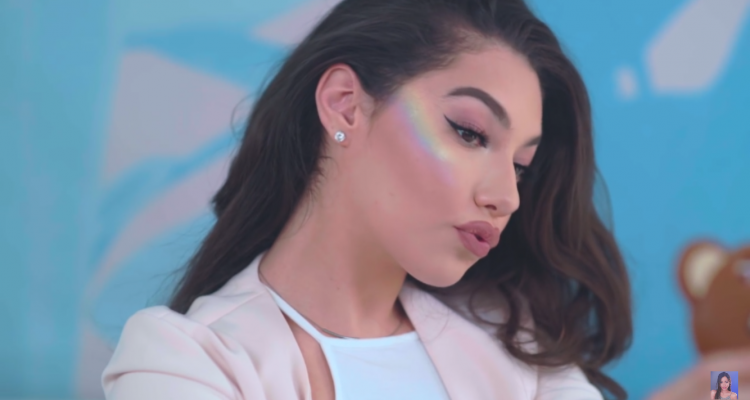We’ve all seen the memes on Twitter before, of guys joking that you should “take a girl swimming on the first date” to see if, when her makeup comes off, she’s as pretty without it, or if she “tricked” the guy she’s on the date with. While this scenario is ri diculous, it opens up a debate that’s been ongoing for some time: is the use of makeup compliant with what it means to be a feminist? Does it challenge the patriarchy, or does it force women to continue a pattern of behavior meant solely to please men?
We should first discuss the many points of view behind what makeup represents. With the rise of beauty gurus and makeup tutorials on YouTube, makeup has come into the mainstream as an art form, performed well by professionals and those willing to practice enough to reach that same level. This perspective has been adopted as feminist, making the case that makeup isn’t about appealing to men or transforming women so they look the way society expects them to, but is rather for the one applying it. It’s a skill honed through repeated lessons, where progress can be measured and compared to others, and skills can be elevated and become more complex through practice. This point has gotten even more traction with the rise in male beauty gurus such as James Charles and Jeffree Star. Makeup can be seen as something genderless that all people should feel free to use at whatever level they like; you can’t get more feminist than that.
This emphasis on makeup as a skill also allows for the feminist argument of makeup as empowering, as YouTube has given a multitude of, primarily, women a wide platform with which to teach this skill and become financially successful through it. As this article from The Society Pages explains, “Through their expertise about beauty products/techniques, [beauty vloggers] can gain subscribers and, if they develop a sufficient following, they can acquire financial power via the YouTube Partner Program, through which vloggers earn anywhere from a few thousand dollars to six figures per month. In addition… they can leverage their online popularity/visibility to build their own beauty brand.” Makeup has not only become a honed skill, but in some case can mean a livelihood or even a thriving brand, taking some women to a level where they have power and influence over their success.
This is where the slope gets slippery, and where I’m hesitant to outright call this trend a feminist one. A natural statement for people to make about themselves is, “I’m a feminist.” They assume feminism as a full identity, and by doing so, assume a certain amount of rigidity as to what constitutes being a feminist. Feminism becomes who they are in full, and therefore guides their every behavior. Some women can make the argument that whatever they do is feminist just by virtue of them being a women. This excuse encapsulates behaviors that are stereotypically feminine, such as shopping, getting plastic surgery or, in this case, becoming skilled at applying a full face of makeup. There’s empowerment in the individual and behind the intent with which they approach the activity, so the activity is still a feminist one, right? Not quite, I’d say.
What I have trouble with is the beauty industry in general. Makeup isn’t actively battling against patriarchal expectations. It doesn’t break from established norms that are hundreds of years old, of women conforming to societal standards of beauty, and if anything is working harder than ever to present that image, making an impression on younger girls at an earlier age. It’s wonderful if women are empowered by their use of or abstinence from makeup, but the truth is there is still a societal expectation that women do something to alter their faces and that they’re not as credible or professional or even beautiful if they don’t. The same empowerment that allows beauty vloggers on YouTube to build their own brands also gives them the power to reach younger viewers, mostly impressionable girls still coming into their own and feeling as though they cannot go through that awkward tween phase of bad hair and braces we all experienced. These makeup influencers can probably be termed “feminist” in other ways, but their aiding of this toxic industry is decidedly not in line with this way of thinking. The makeup industry is one that profits off the insecurities of women young and old, and in turn makes us as a society demand women meet these certain expectations of physical appearance so that they may be valued at all.
At the end of all of this, the original question still stands: in this day and age, is becoming good at makeup in line with what it means to be a feminist? I’ll say this: it’s not my place or the place of anyone else to tell a woman how she should dress, do her hair or apply her makeup. A woman’s ability to make that choice for herself, with whatever intent she puts behind it, is an undeniable feminist belief. But what I cannot abide by is when this choice is wielded by beauty corporations and brands to shame those who don’t make this same choice, who would rather wear no makeup at all. If anything, it forces women to turn on women, encouraging those with power in this industry them to take part in this shaming. It’s one of the most decidedly un-feminist things about this argument, leaving this industry in need of some hard reflection about the messages it’s sending to women.


Leave a Reply